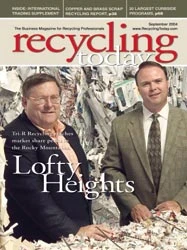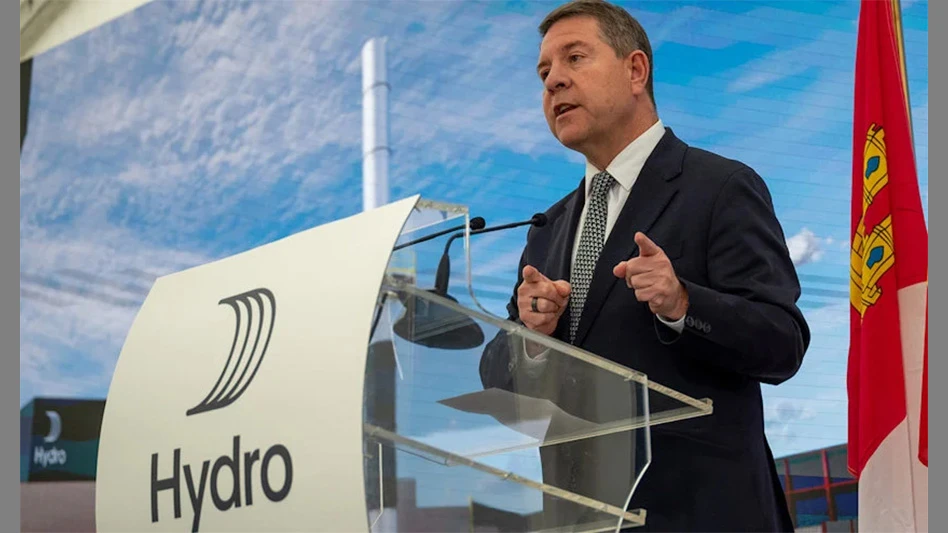As befits the Tri-R business philosophy, the company is wary of accepting the additional material if it cannot be processed and marketed with an acceptable profit margin. Asked what the company’s biggest ongoing challenge is, Powelson replies, “To continue to find ways to maintain cost leadership.”
Powelson, Heinrich, Tri-R Recycling Operations Manager Robb Espinoza, Secondary Fiber Inc.’s Giles King and a number of other key staff members consistently seek ways to procure material at a favorable cost, keep operations costs at a minimum and market grades of material that will bring a favorable price.
Regarding operations, Powelson says the company enjoys a built-in competitive advantage with its central location and permission to operate outdoors.
Additionally, Espinoza and other staff members vigilantly monitor operating costs and make adjustments to maintain low processing costs per ton.
On the materials marketing side, Powelson says, “We consistently upgrade materials. This allows Tri-R to maximize the value of the products we ship.”
But the procurement side remains the key, says Heinrich. “Our company is absolutely market-driven, not operationally driven,” he remarks. “The true opportunities are found by being creative on the buying end, allowing you to create profit.”
Heinrich says creating recycling programs for some 3,000 accounts that can be vastly different from one another stems from asking customers what they hope to achieve and then tailoring a unique program. “We ask customers what they want to achieve, avoid and maintain, rather than presenting them with a ‘canned’ program. Our approach has helped us grow at a rate of 20 percent per year for a long period of time.”
Get curated news on YOUR industry.
Enter your email to receive our newsletters.

Explore the September 2004 Issue
Check out more from this issue and find your next story to read.
Latest from Recycling Today
- Toppoint Holdings expands chassis fleet
- Lego creates miniature tire recycling market
- Lux Research webinar examines chemical recycling timetables
- Plastics producer tracks pulse of wire recycling market
- Republic Services, Blue Polymers open Indianapolis recycling complex
- Altilium produces EV battery cells using recycled materials
- Brightmark enters subsidiaries of Indiana recycling facility into Chapter 11
- Freepoint Eco-Systems receives $50M loan for plastics recycling facility





